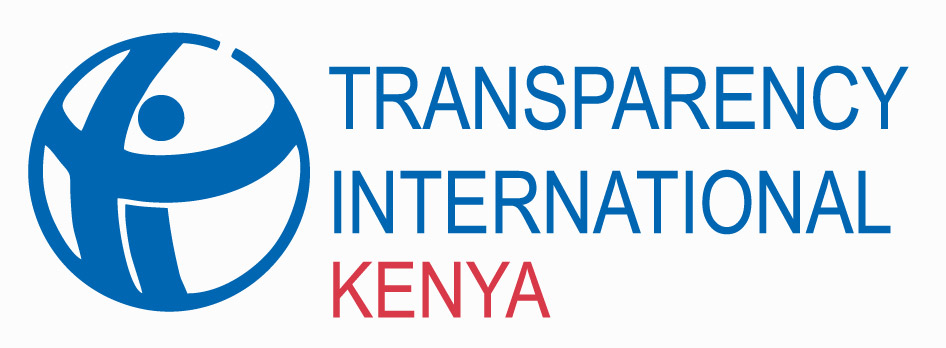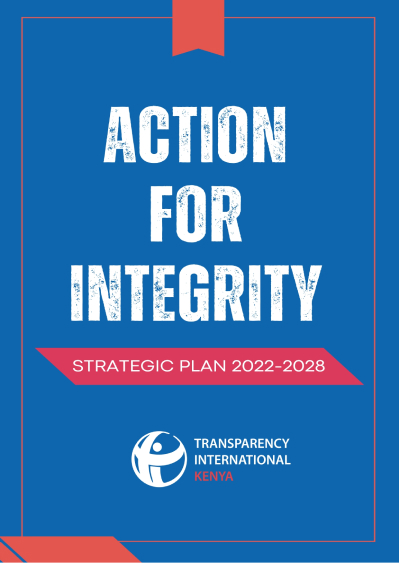Erik Solheim, Executive Director-UN Environment, Juliette Biao, Director UN Environment Regional Office for Africa, Henrick Maihack – Resident Representative Kenya Freidrich Ebert Stiftung, Mithika Mwenda – Secretary General, Pan African Climate Justice Alliance, Stephen K. Cheboi- Chairman, National Council of NGOs, partners, invited guests, ladies and gentlemen, Good Morning.
It is my pleasure to be here today and to make these remarks on behalf of Transparency International Kenya.
As a civil society anti-corruption watchdog with 20 years’ experience fighting corruption, 7 years promoting environmental governance and almost 5 years addressing anti-corruption in climate finance globally and nationally, TI- Kenya is committed to drive for significant advances toward achieving environmental sustainability and addressing climate change in a transparent, accountable and participatory manner. Climate change and corruption are arguably the greatest challenges of recent times. Worse, both are interrelated.
Transparency International has long held that corruption in climate finance and finance set to address environmental challenges will not only increase the rate of climate change to greater levels above the 4 degrees centigrade indicated in the 5th Assessment report of the Intergovernmental Panel on Climate Change (IPCC), but also increase human suffering as a result of climate change and environmental degradation. The recent hurricanes witnessed in the Caribbean and the US, and other natural calamities across the world are a constant reminder that we must act fast to address the challenges posed by climate change and environmental degradation.
Many of the mechanisms for delivering finances to address these challenges are new and untested. However, decades of experience with development aid have taught us that anti-corruption safeguards must not be an afterthought. Now is the time to ensure that multilateral and bilateral climate funds operate with and are governed by full transparency, accountability and integrity. Parallel to the increase of new financial flows to address environmental challenges, question regarding transparency, accountability and integrity of how decisions are being taken, for what, who and how are waxing. Meanwhile, concerns are escalating that inefficiently developed regulatory systems and funding channels could provide opportunities for corruption. Moreover, most countries bearing the brunt of natural calamities, environmental degradation and impacts of climate change are also characterized by significant governance challenges.
Stakeholder engagement and participation in decision making processes is vital in enhancing transparency, accountability and overall effectiveness of intended interventions. In Kenya, Civil Society groups have proved to be essential partners in environment-related projects to date. These groups are involved in oversight to public advocacy and education. Observers frequently cite the primary role of civil society groups in bringing oversight to the decision-making and monitoring reporting and verification (MRV) processes, and investigating and documenting abuses and violations. Stakeholder engagement cannot be viewed in isolation. It must be accompanied by timely access to information and adequate capacity building to enhance meaningful stakeholder engagement. Kenya has made significant strides in these with provisions in the Constitution of Kenya, 2010 advancing access to information and public participation. At the international level, looking at different multilateral agencies and dedicated funds, they all have diversified policies with regards to stakeholder engagement and access to information. TI has conducted a comparative assessment of four multilateral funds that focus on climate change and environmental conservation looking at their governance systems and best practices that each could borrow from another including but not limited to stakeholder engagement and access to information.
Through the Climate Governance Integrity Programme, TI-Kenya has been working to improve Transparency and Accountability climate finance governance and environmental management in Kenya since 2011. The programme has worked extensively to build the capacities of different stakeholders to enable effective participation in decision making processes and for the prevention of corruption. TI-Kenya welcomes the efforts taken by UNEP to enhance meaningful stakeholder engagement in policy design. Development of the UNEP’s stakeholder engagement handbook and guidelines for participation of major groups and stakeholders in policy design are a step in the right direction to enhance stakeholder engagement with UNEP processes. More capacity building on these important guides is important particularly for local level stakeholders who are more often than not affected by UNEPs interventions.
We hope that this workshop will enlighten and build the capacity of all stakeholders to effectively engage with UNEP and UNEA. TI-Kenya remains committed to enhancing stakeholder engagement in different decision making platforms and will continue to collaborate with UNEP and the other partners to achieve this objective.
With those few remarks, I wish you fruitful deliberations.
Thank you


